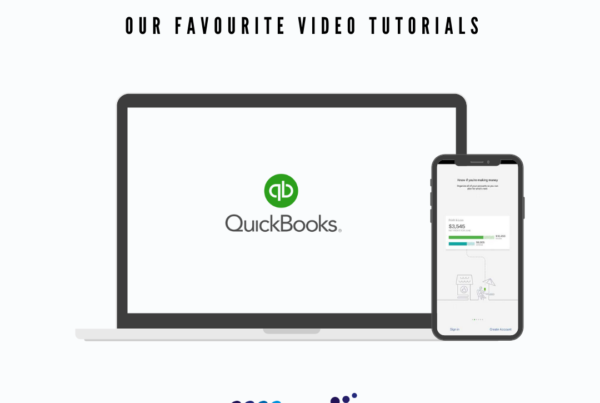Sole trader businesses come in all shapes and sizes – tradesmen, freelancers, consultants … the list goes on. All these businesses will incur costs and routine expenses. But when it comes to filing your first tax return, it’s natural to be a bit overwhelmed by the different types of expenditure, and figuring out what goes where. So what you can actually claim as an expense against taxable profit?
Before we go any further – you can’t claim tax relief for entertaining clients, suppliers and customers. We get asked that a lot.
Tip 1. Don’t stress.
Before we dive into the expense categories, let’s take a more general approach. There are two types of expenses; those that are allowed, and those that are disallowed.
- Expenses that are wholly and exclusively related to business – allowed.
- Expenses that are unrelated to business, or of a personal nature – disallowed.
I’m over-simplifying here; we’ll get into the specifics shortly. But there’s a lot to be said for sticking to this simple rule:
Tip 2. Only claim expenses which are wholly and exclusively related to business.
Obviously, you should 100% endeavour to categorise the expenses as best you can. The categories HMRC provides you with are easy enough to understand, and most of us know that your office rental costs certainly won’t go into your equipment costs section.
However, claiming expenses that are disallowed could see you liable for unpaid tax (with interest) and fines. You might knock £100 off the tax bill, but if you’re caught you’ll pay it back, and then some.
To add to this, you will most likely spend a good bit of time on admin; letters, 20+ minutes of the HMRC hold music, talking to their automated phone system…
Is it worth it? No. Pay your tax (the right amount of course, which is the legal minimum).
Tip 3. Be honest, be reasonable.
There are many things you can claim as a sole trader – but don’t push it. Don’t claim for anything that you can’t prove that you paid for (via a receipt, a bill, or a bank statement). HMRC are using sophisticated methods to find the £33bn that is missing from the total tax that should be collected each year, and random investigations are becoming more and more common.
Fun fact: we offer tax investigation insurance to our sole trader clients for only a fiver a month.
So here’s a detailed breakdown of the typical expenses that are allowed by HMRC. If you’d like a bit more advice, feel free to call our office or book a free consultation.
Using your Home Office
Suppose you use a room in your home exclusively as an office; you have two options:
Option 1 is pretty easy – you can claim a flat rate of £4 per week. No calculations, you just have to be working over 25 hours in the office within the week. Once you choose this option you have to stick with it for future tax returns.
Option 2 takes a little calculating, but in some cases it’s worth the hassle.
- Take the total cost of your utilities/rent/insurance etc.
- Divide it by the number of rooms in your house that aren’t bathrooms, kitchens and hallways.
- You can claim this figure as an expense.
Now, if you only use half of the room as an office, you can only claim 50% of this figure; the key is to make a reasonable estimate of how much of your living costs are going towards your business.
It’s worth noting that you can’t claim expenses for buying or building your business premises.
Travel
If you travel a lot, you can use a mileage tracking app. If you’re not a fan of apps, then please make sure you keep your receipts!
Fun Fact: We’ve heard from a reliable source that the TaxKings App is great at this, but you can try it out for free and decide for yourself.
Disallowed:
- You can’t claim for the cost of travelling between home and work; commuting to your business premises isn’t allowed.
- Personal journeys – If you take a journey for both personal and business reasons, it is normally disallowed in its entirety
Allowed:
As with using a home office, there is a simple option: a flat rate. We often advise small businesses to claim the flat rate. This is currently 45p per mile up to 10,000 miles (25p thereafter). As with use-of-home-office claims, if you choose this option then you have to stick with it until you change your vehicle.
Again, the other option is to make a reasonable account of the vehicle/travel costs which relate to business. You can include business-related car or van costs. Fuel, hire charges, repairs, vehicle insurance, servicing and even your breakdown cover. You can also include business travel by train, bus, plane or taxi, and hotel rooms and meals during overnight business trips.
Office expenses
Equipment or overheads: From computers, printers (and ink), software, stationery, postage, desk lamps… you can claim quite a lot here. Again, be honest and reasonable – if you’re a one man business, claiming a laptop purchase should be okay, but, you know that you’d struggle to justify purchasing two laptops and an ipad if all you’re doing is handling a few emails.
Stock/materials
Each business will claim completely different items under this category; a hairdresser may be able to include hair products which are sold to customers, whereas someone in IT repairs may claim for computer parts or a wide range of software packages.
You can claim tax relief on the cost of stock, any materials or direct costs that arise from producing your goods. But as always, don’t try to bend the rules here – we accountants have to make an adjustment for stock at year-end so you can’t just buy materials on April 5 to pay zero tax!
Training costs: At some point, you might want to improve your skills and knowledge, to keep yourself up to date with the competition. Costs for training courses that relate to or update your current skills are allowable.
However, if you are being taught something new which will enable you to add to your products or services then that is viewed as an investment in oneself and is almost always disallowed – you should speak to your accountant who can give you proper advice.
Legal and professional fees
Accountants, solicitors, consultants and other professional services costs relevant to your business should not only help you grow your business but also help lower your tax liability.
Insurance
This varies between different businesses; each will require entirely different insurance packages depending on what services they offer. As an example, professional indemnity insurance or public liability insurance are both tax-deductible expenses.
Bank Charges
Perhaps surprisingly, you can also include bank, overdraft and credit card fees, any interest on business loans, hire purchase interest and leasing payments. It’s important to remember that if you’re using cash basis accounting, you are limited to claiming up to £500 in interest and bank charges.
Advertising & Marketing
If you’ve purchased an advertisement online or in a newspaper, had yourself listed on a website/phone directory, or even given out free branded items at an event; these are acknowledged as advertising & marketing costs and are allowable. The cost of your business website can also be included in your tax calculation.
Clothing
You can’t include the cost of everyday clothing just because you wear it to work; you also get personal use out of these and, remember, personal expenses are disallowed. You can include the cost of branded work wear, uniform or essential protective clothing. If you are an entertainer, you are able to claim for costumes that are directly related to your business activities.
Mobile Phone
You can claim some of your mobile phone costs as a business expense. While a tradesman may have a business phone solely for business use – 100% claimable – often a freelancer will use their phone for both personal and business use.
In theory, we take a sample month of bills each year and highlight your business use vs personal and use that as a basis of what % of your total bill to claim as a business expense.
In practice, we tend to be a bit more pragmatic and suggest that if you use your mobile phone quite heavily for business use then there should be no problem in claiming 50%.
What you need to remember is that you might have to justify this percentage to HMRC in the event of an enquiry, so either keep a note of your workings or lean on the side of caution
Subscriptions
Many businesses will benefit from becoming a member of a professional body. A membership can often be free, but it’s not unusual to pay a subscription. For example, an engineer may join a number of bodies such as the ENGC or the ICE; a songwriter may join Musicians Union, or ISM. In any case, you can include the cost of membership to trade bodies or professional membership organisations if they’re relevant to your business.
Staff costs
As your business grows, employee and staff salaries are always allowable expenses. This also extends to bonuses, benefits, employer National Insurance contributions, pension contributions and agency fees.
Summary
By necessity, this article has covered only some of the most common allowable expenses for the self-employed. Good and timely advice from your accountant or tax adviser can more than pay for itself!
Finally, remember that while we talk about ‘claiming’ business expenses, the taxman isn’t paying your business costs, simply allowing you a tax deduction. The cost is still coming out of your business profit. Buying items necessary for your business is cheaper than buying them yourself, but make sure you don’t get carried away and always be reasonable – if you couldn’t justify it in the event of a tax inspection, don’t include it!




